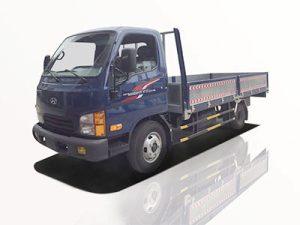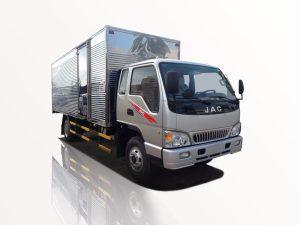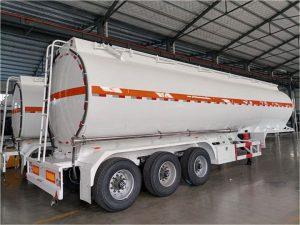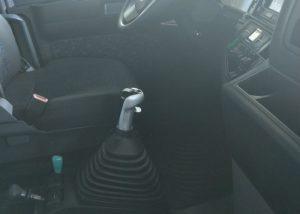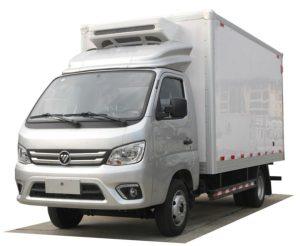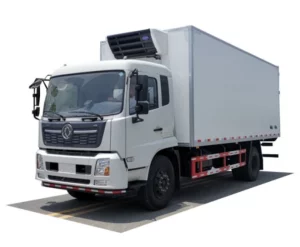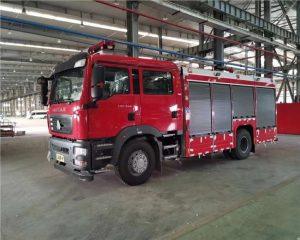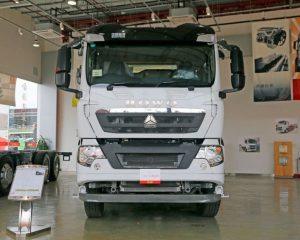Monday to Saturday - 8:00 -17:30
Loadmaster Trash Trucks: Everything You Need to Know
Introduction
In today’s waste management industry, efficiency and reliability are paramount. One of the leading solutions for commercial waste collection and disposal is the Loadmaster trash truck. These vehicles are designed to handle the rigorous demands of urban waste collection while maximizing both performance and durability. In this article, we will dive deep into Loadmaster trash trucks, exploring their features, benefits, and real-world applications, along with useful tips for operators and fleet managers.
What are Loadmaster Trash Trucks?
Loadmaster trash trucks are specialized vehicles engineered to facilitate the collection and transport of municipal solid waste. Renowned for their robust build quality and advanced technology, these trucks provide efficient waste management solutions tailored to both urban and rural settings. The Loadmaster lineup, manufactured by reputable companies, includes various models that cater to diverse waste collection needs.
History of Loadmaster Trucks
The Loadmaster brand has its roots in the mid-20th century, evolving to meet the growing demands of urban waste management. Initially focusing on simple designs, the brand has significantly modernized its offerings through innovation, adopting advanced materials and technologies, including automation and telematics.
Key Features of Loadmaster Trash Trucks
- Durability: Built with high-quality materials that withstand heavy loads and harsh conditions.
- Efficiency: Engineered to optimize collection routes and reduce downtime.
- Advanced Technology: Equipped with features like automated mechanisms for lifting and compacting waste.
- Versatility: Suitable for residential, commercial, and industrial waste collection.
- Customizability: Available in a range of configurations to suit specific operational needs.
Benefits of Loadmaster Trash Trucks
Investing in Loadmaster trash trucks can yield numerous benefits for municipalities and waste management companies. Understanding these benefits will help in making informed decisions about waste collection fleet investments.
1. Cost-Effective Waste Management
Loadmaster trucks are designed to handle heavy loads efficiently, which translates to fewer trips and reduced fuel consumption. This not only saves money but also minimizes the environmental impact of waste collection operations.
2. Enhanced Safety Features
The design of Loadmaster trucks includes safety features that protect both operators and the public. From ergonomic cabins to advanced braking systems, these trucks are built with safety in mind, which reduces the chances of accidents during waste collection.
3. Reduced Labor Costs
With automated loading and unloading features, Loadmaster trucks reduce the manual effort required from drivers and operators. This can significantly lower labor costs and improve efficiency in collection routes.
Different Models of Loadmaster Trash Trucks
Loadmaster offers a wide variety of trash truck models, each tailored to specific waste collection scenarios. Here are some of the most popular models:
1. Loadmaster Automated Side Loader (ASL)
The ASL model is designed for automated residential waste collection, featuring advanced robotic arms that lift and dispose of bins. This not only enhances safety but also increases efficiency in collection.
2. Loadmaster Rear Loader
Ideal for commercial and industrial waste collection, the rear loader comes equipped with superior compaction technology. This model is perfect for handling bulky waste and generating high payloads.
3. Loadmaster Front Loader
The front loader model is commonly used in large-scale waste management operations. Its strong lifting capabilities allow it to handle larger and heavier containers seamlessly.
Specifications of Loadmaster Trash Trucks
| Model | Engine Type | Payload Capacity | Compaction Ratio | Dimensions (LxWxH) |
|---|---|---|---|---|
| Automated Side Loader | Diesel | 30,000 lbs | 5:1 | 25′ x 8′ x 10′ |
| Rear Loader | Diesel | 38,000 lbs | 8:1 | 27′ x 8.5′ x 11′ |
| Front Loader | Diesel | 42,000 lbs | 6:1 | 28′ x 8.5′ x 11′ |
Operational Tips for Loadmaster Trash Trucks
Utilizing Loadmaster trash trucks effectively requires proper planning and execution. Here are practical tips that fleet managers and operators can follow:
1. Route Optimization
Use GPS-driven routing software to optimize collection routes. This minimizes travel time and fuel consumption, ultimately increasing productivity.
2. Regular Maintenance
Establish a comprehensive maintenance routine to ensure the longevity of the truck. Regular inspections and timely repairs can significantly reduce breakdowns during operations.
3. Training for Operators
Invest in continuous training for your operators. Familiarizing them with the unique features of Loadmaster trucks enhances safety and efficiency on the job.
Common Challenges and Solutions with Loadmaster Trash Trucks
While Loadmaster trucks offer many advantages, operational challenges can emerge. Below are common issues and suggested solutions:
1. Mechanical Failures
Regular maintenance is key. Create a scheduled checklist to address potential mechanical issues before they become serious problems.
2. Weather-Related Delays
Weather can greatly affect waste collection schedules. Plan for alternative routes and ensure your fleet is equipped for harsh conditions.
3. Driver Shortages
Consider offering competitive wages and benefits to attract skilled drivers. Providing training programs can also help retain talent within your workforce.
The Future of Loadmaster Trash Trucks
As technology continues to evolve, Loadmaster trucks are expected to integrate new advancements that promote sustainability and efficiency. Possible future innovations may include:
1. Electric Loadmaster Trucks
With the growing trend toward sustainable transportation, the development of fully electric Loadmaster trucks is on the horizon. This will significantly reduce carbon emissions associated with waste collection.
2. Enhanced Data Analytics
Telematics and data analytics will play a crucial role in optimizing operations. By collecting data on routes, fuel consumption, and payload, companies can make informed decisions to enhance efficiency.
Loadmaster Trash Trucks in Real-World Applications
To illustrate the effectiveness of Loadmaster trash trucks, let’s explore a few practical examples:
Case Study 1: Urban Waste Management
A metropolitan area implemented Loadmaster automated side loaders for residential waste collection. After deployment, the city recorded a 30% increase in collection efficiency, significantly reducing the number of missed pickups.
Case Study 2: Commercial Waste Solutions
A commercial waste management company transitioned to Loadmaster rear loaders and reported a drop in operational costs due to the increased payload capacity and reduced fuel usage. Their ability to handle larger contracts increased dramatically.
FAQ Section
1. What types of waste can Loadmaster trucks collect?
Loadmaster trucks can collect municipal solid waste, recycling, and industrial waste, depending on the specific model and configuration.
2. Are Loadmaster trucks environmentally friendly?
Yes, Loadmaster trucks are designed to minimize fuel consumption and emissions. Many are also evolving towards electric options for a greener footprint.
3. How often should Loadmaster trucks be serviced?
Regular maintenance should follow the manufacturer’s recommendations, typically every 3,000 to 5,000 miles or as dictated by operational conditions.
4. Can Loadmaster trucks be customized?
Yes, Loadmaster trucks can be tailored to meet specific operational needs, including body type, engine specifications, and additional equipment.
5. What is the typical lifespan of a Loadmaster truck?
With proper maintenance, Loadmaster trucks can last between 10 to 15 years, depending on usage and care.
6. What are the benefits of automated Loadmaster trucks?
Automated Loadmaster trucks offer benefits such as increased safety, reduced labor costs, and improved efficiency in waste collection procedures.


